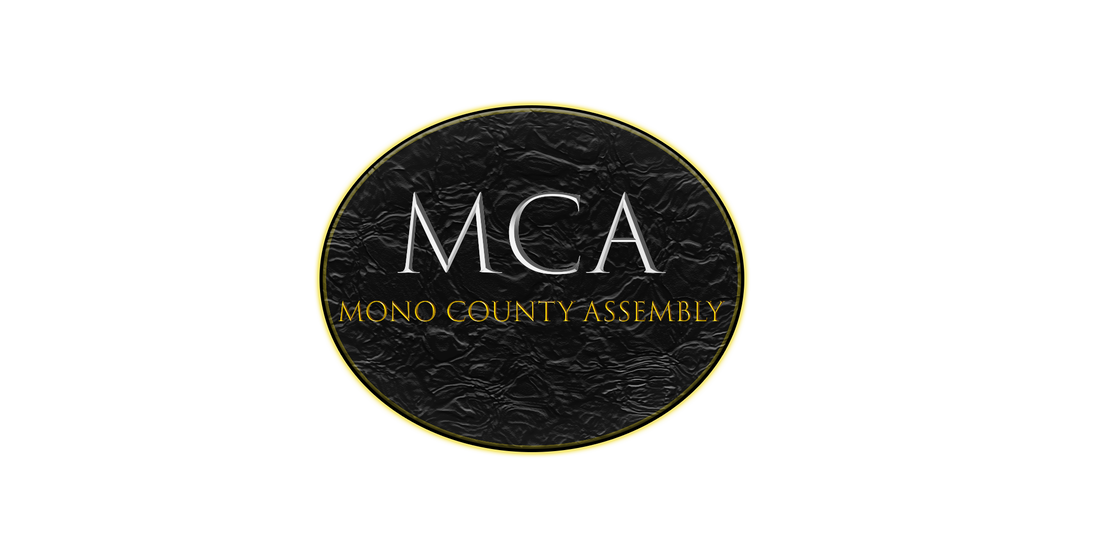 By Anna Von Reitz It's up to you each and individually to determine whether you have "Federal Income" or not. Generally speaking, if you are receiving a check from the Federal Government (that isn't an earned pension based on private sector earnings) you are in receipt of Federal Income. If you are the unemployed spouse or minor child of a Federal Worker --- Military or Civil Service --- you are in receipt of Federal Income because your Head of Household is supplying you with his or her Federal Income. If you are a "Medical Doctor" and using your "Medical License" to treat "U.S. Citizens" or "citizens of the United States", you are in receipt of Federal Income. If you are a private physician who screens your clients to be sure you are only treating Americans in a private capacity and you properly endorse all checks to redeem the payment as lawful money, you are NOT in receipt of any "Federal Income". Most doctors don't use their licenses for anything but writing prescriptions and less than ten percent of the people who walk through their doors are Federal Employees --- strictly speaking, they should ask patients to disclose whether or not they work for the military or federal government, and only pay Federal Income Taxes on money received from the 10% that are government workers or dependents of government workers. All of this hinges on your individual circumstance and how you structure your business and handle your bank accounts. That should be perfectly clear to anyone who thinks about this for more than a minute. What if I am a man who has retired from the military, then worked running his own private non-federal lawn mowing business for ten years, and then worked for the Post Office for ten years, so that when he retires his retirement pension is based on two different kinds of "federal income" from his time in the military and his time in the Post Office, plus whatever he paid in from his lawn mowing business? Does he have "federal income" as a retiree? Yes, he is receiving pension funds based on Federal Income he earned in the past, so he has to pay Federal Income Tax on that portion of his pension that he earned in Federal jobs. If more Federal Workers understood how they get shafted and shafted again for working for the "Federal Government" a lot of them wouldn't stick around. Having a Federal License doesn't necessarily mean ANYTHING. If I have a license to run a radio station and don't have a radio station, having a license to run one is immaterial. Say that I am a Real Estate Agent --- the word "Agent" is a tip-off that you are working in a federally regulated industry --- same with "Insurance Agent" --- and yes, I might have Federal Income as a result. If I am selling houses to U.S. Citizens and citizens of the United States and expediting their receipt of "Titles" to the property, then the "commission" (think military commissions) I receive on the sale is most certainly Federal Income and I am using a "license" to do this activity which obligates me to pay the Federal Income Tax ----and redeeming the funds as "Lawful Money" does not release my obligation to pay Federal Income Tax on the gross receipts. If, however, I am working in a private capacity to help buyers find homes and helping sellers to sell homes, and I screen that portion of my business so that I am working for Americans on a private basis, then all I have to do is make sure that the buyer actually pays "ten dollars" in silver money "in hand" to the seller and provide information to the buyer on how to claim their Land Patent, then I haven't used my "Real Estate License" and I am not in receipt of Federally-connected income. I still have to redeem any checks as "Lawful Money" but otherwise I am in the clear and above board. Now, this is all just common sense. If you are providing services to Federal Workers and receiving their money, you are in receipt of "Federal Income". If you are receiving money as a result of employing a Federal license, you are in receipt of "Federal Income" to the extent that you employ that license. It's up to you to determine if you used that license to enable you to provide service to that specific person, or not. One way for doctors to use their "Medical License" to prescribe meds and not claim the total patient receipts as "Federal Income" when actually treating members of the General Public, is to track how much "income" they receive specifically from writing the prescription or sale of the medication and only claim that as "Federal Income". A physician, could, for example, establish a flat fee for writing prescriptions -- say, fifty bucks for up to two prescriptions, a hundred for three or more. With respect to a non-Federal Employee patient, he would only owe "Federal Income Tax" on the prescription fee. I am giving you these examples and expect you to sit down and think about the logic that applies throughout---- and share this information with others so that they have to sit down and use their own brains to solve their own puzzles. There is no "one size fits all" and certain people are going to have to use their brains to figure out what they are "licensed" to do and when those "licenses" apply and when they don't. Some doctors treat a lot of Federal patients and some treat virtually none at all. Some real estate deals involve actual money in hand and others don't. Those that don't result in transfer of titles instead of transfer of land and the receipts from those transactions are "Federal Income". So far as the Assemblies are concerned, the only issue is --- does the person have Federal Income? Yes or no? If yes, how much Federal Income? Having genuine Federal Income in amounts greater than The Standard Deduction precludes us from revoking election to pay Federal Income Taxes. Anyone who has actual Federal Income in excess of The Standard Deduction is obligated to pay the Federal Income Tax. The problem is that millions of Americans have been taxed on their private sector earnings and millions of people have paid Federal Income Tax on all their receipts when they are actually only required to pay Federal Income Tax on the portion of their receipts that derives from the use of a license or from providing service to Federal Workers and their direct Dependents. Receipt of substantial amounts of Federal Income also prevents us from acting as State Citizens. Remember that the whole idea of being a "State Citizen" revolves around the fact that you are free from other allegiances, obligations or conflicts of interest ---- and having Federal Income is a potential conflict of interest that could lead one to make decisions favorable for the Federal Government but against the best interest of one's State of the Union. If someone has Federal Income less than the amount of The Standard Deduction each year, it is regarded as totally insufficient to create a conflict of interest. For example, someone spent two years in the Navy back in 1966-67 and as a result, a very small amount of the monthly Social Security pension check -- about $40 a year --- is based on Federal Income. This is much less than The Standard Deductible and doesn't have to be reported and is immaterial so far as the Assemblies are concerned with respect to any conflict of interest. For example, someone has a Real Estate License, but they don't use it anymore, or have no Federal Income resulting from it because they are doing cash sales with actual money paid, or, they use the license very occasionally and have Federal Income less than The Standard Deduction or less than ten percent of their total income --- so long as this is true, there is no reason for the Assembly to be concerned about any conflict of interest. It shouldn't even be a question. For example, someone has a Medical Doctor's License, but 97% of their patients are non-Federal Workers, and the bulk of any Federal Income they receive comes from fees for writing prescriptions ---- even though they might have Federal Income in excess of The Standard Deduction and might have to file the paperwork, if less than 10% of their total earnings comes from Federal Income, it presents no possible presumption of conflict of interest. Assemblies and Vetting Committees are expected to apply some Common Sense when determining whether or not a financial interest is sufficient to create a conflict of interest or not. Generally speaking, anyone who has less Federal Income than The Standard Deduction is 100% held harmless. Anyone who has less than ten percent of their total income from Federal Sources is 100% held harmless. What you have to ask yourselves is --- would a Prudent Man given these facts find that the potential for conflict of interest exists? People who have substantial portions of their income derived from Federal sources should not be serving as State Citizens, but a veteran who has $40 of Federal Income per year can serve as a State Citizen because the amount of Federal Income he receives poses no rational threat of any conflict of interest and provides no motive to undermine the welfare of his State of the Union. Keep your focus on "What makes sense?" and "Why are we concerned about this?" And remember that every case is different. ---------------------------- See this article and over 3700 others on Anna's website here: www.annavonreitz.com To support this work look for the Donate button on this website. How do we use your donations? Find out here.
0 Comments
Leave a Reply. |
AuthorAnna Von Reitz Archives
December 2022
Categories |
Support |

 RSS Feed
RSS Feed

